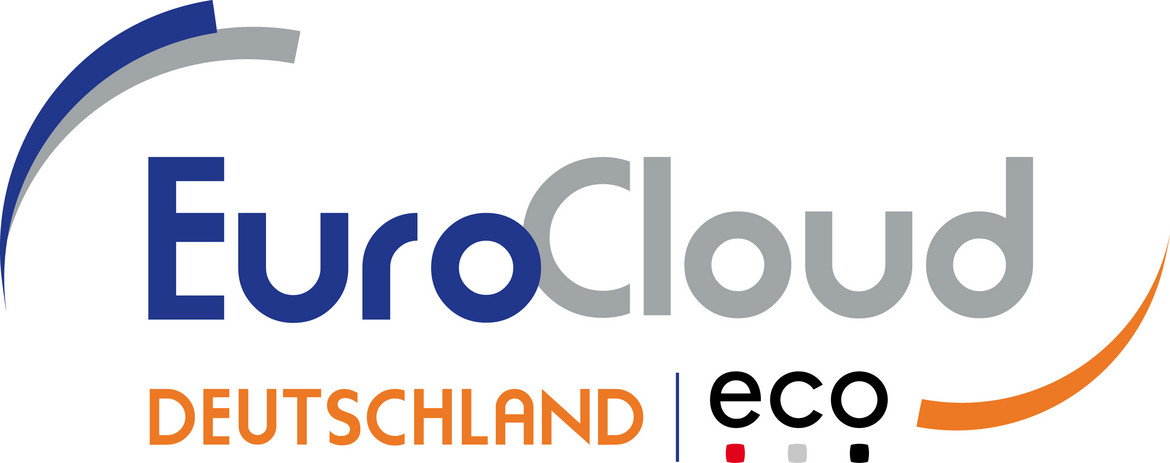How EuroCloud Native is Giving SMEs a Taste of the Public Cloud
One year of EuroCloud Native (ECN): What drives the initiative and what does it want to do for SMEs. An outlook from Dr. Nils Kaufmann, Head of ECN.

© karlovobg| istockphoto.com
One year of EuroCloud Native (ECN): What drives the initiative and what does it want to do for SMEs. An outlook from Dr. Nils Kaufmann, Head of ECN.
Those who know me, know that I love to drink cocktails. For example, my favorite drink is the Incredible Hulk. And why is that, you may ask? Well, first and foremost, it is the cocktail that once made a dear friend (show bartender Görkem Harp) a multiple champion. And also because, the recipe does a great job of combining traditional ingredients with unusual ones like basil and pistachios. The results can be seen and, of course, tasted: Modern nut and herb flavors go better with classic rum than you might first think.
Combine unfamiliar ingredients in a surprising way. Just to find that the result is very much to one’s liking. To a certain extent, the situation is no different for Germany as a cloud-native location. Why do I believe that?
Because the public cloud is taking root in this country. And this is not only the case with dynamic and modern start-ups or global corporations, but also in the traditional and classic environment: small and medium-sized enterprises (SMEs)!
Certainly, the involuntary move of the workplace into one’s own four walls has done its part to question fundamental dogmas and trigger new ways of thinking. Whether it’s office software, online meetings and collaboration tools – services like these are particularly easy to obtain from the public cloud. What is comfortable for users is even more comfortable for administrators, because such services can be managed centrally – and maintained more easily because they are automated.
Benefiting from cloud-native technologies
Advantages like these are obviously palatable to corporate leaders in the machine room of our economic system. This is shown by a study which the ECN conducted last year with the IT market researchers of ISG and supported by the members Alice&Bob.Company, CLOUDETEER, Cloudworthy, Deepshore, GECKO, globaldatanet, Kubermatic and tecRacer Consulting. We asked 200 IT managers from companies with 50 or more employees in Germany to what extent their companies’ business models are already benefiting from cloud-native technologies.
And the results of the ISG Pulse Check are telling:
- 22 percent of the companies surveyed report that they are already working with cloud-native approaches.
- 27 percent plan to enter the market in the next twelve months.
- Another 23 percent have at least concrete plans, without specifying the exact time of entry.
Fostering innovation, adapting new business models, and monetizing rapidly changing market and customer demands through digital products – cloud-native technologies enable SMEs to do it all! However, according to the study, so far companies have focused only on the immediate pressure points that their business demands most.
Untouched territory
Long-term visions and cloud strategies? In many places, these are still untouched territory!
But why is this the case? Perhaps due to monolithic software, which has become so rigid that it takes away any room for innovation. Or due to release cycles for special applications that set the pace for IT in the business departments. Or due to outdated software code that has become not only insecure, but effectively unmanageable – think of the Windows 2008 R2 server slumbering in every third basement plastered with a big sign warning “do not touch or restart!”. And it is certainly also due to a lack of expertise, as our study shows: The shortage of skilled workers is slowing down the cloud in SMEs!
Challenges like these are felt everywhere in Germany’s traditionally organized IT operations. Anyone who wants to reorganize and modernize their IT landscape, must bring together unfamiliar ingredients with classic ones. The aim is to combine the old with the new. Partly to dare the unknown. To overcome organizational hurdles. And to find elegant ways to achieve goals: Digitalize customer relationships, implement intelligent services, or evaluate product life cycles based on data. I am convinced that cloud-native technology is the elementary building block for a successful business, because software drives business models today (not the other way around)!
Why? Because highly standardized and highly defragmented cloud-native applications are superior to any legacy application! For example, in such architectures, middlewares, back-ends, and front-ends of an e-commerce suite are loosely – while meaningfully – coupled building blocks that are much easier to tailor to specific needs. These can adapt themselves dynamically to requirements or workload. Companies that recognize this and combine their business know-how with cloud-native expertise are not only making their IT systems more resilient but their entire business model more robust.
Resilient, robust, and dynamic
What gives companies breathing room via the public cloud makes today’s infrastructure an enabler for applications. Provisioning computing power, provisioning storage resources and administering virtual machines – cloud-native technology scales software autonomously. Elastic and server-less computing capabilities always provision cloud resources as applications demand them in real time.
Dynamic, flexible, and agile: Measures that save costs in operation are usually not cheaper per se when companies decide to take the step into the public cloud . And the very thing that decouples companies from the constraints of a legacy IT foundation presents the organization with its own challenges. Because: Agile software needs an agile culture!
A culture that is moving away from regular software investments and term-based maintenance contracts. Business departments that are no longer grouped around applications in release cycles. But rather apps that are developed iteratively and continuously. Always according to customer demand or business requirements. Immediately write innovations into software, test, throw away and further optimize: Dev(Sec)Ops makes developers not only the most shrewd and sought-after bartenders of digitalization – but also demands more and more responsibility from them. Today, they vouch for the security of their own applications. And they sometimes also have to ensure operation. I am convinced that none of this can succeed without an agile organization. A cultural change is the mandatory prerequisite that technology needs (downstream).
What this has to do with EuroCloud Native? We want to be for the German cloud-native market what a olive is for a martini or a lime for a caipirinha: The modifier that makes the cocktail a cocktail!
Whether juices, soda, mineral water or fruit – the modifier combines the various ingredients in the drink. And the modifier determines the direction of the drink. The ECN is no different: We want to combine the classic and modern IT worlds. And introduce traditional SME entrepreneurship to the cloud-native flavor. Not just selectively at the current pressure points. But fully comprehensively, strategically, and with entrepreneurial vision.
What ECN can bring to the mix
Transparency: We are mapping the market and the network of Cloud Native providers in Germany (for the first time).
Solutions: We are looking for ways to combine SME culture with young start-up thinking (example: purchasing processes). Because the future will certainly not be managed by a single large and generic service provider, but by a multitude of vertical experts!
Ecosystems: We enable collaboration. And that goes beyond the boundaries of competition and rivalry (after all, cloud-native culture means more coopetition and less competition).
One thing is certain: Regardless of whether hybrid, multi, private or even public – the cloud doesn’t make the world simpler, but rather more and more complex. More than ever, it’s important to get help. This was also recognized by 85 percent of the respondents in our study: They consider it important or very important to work with specialized cloud-native providers. Because:
Cloud Native is a must for anyone who wants to rethink their own value creation via IT and software.
A cocktail rule also applies here: The best drinks are only available from professionals! And you never drink the best drinks alone – but always in the best of company (such as at the ECN Summit 2021).
Cheers to the cloud-native year 2022!
Best regards & stay healthy
Nils
About EuroCloud Native
EuroCloud Native is an initiative of EuroCloud Deutschland , the association of the cloud computing industry in Germany. Since 2020, ECN has been specifically targeting providers of public cloud-based solutions and services, which are mostly young companies or startups. Founded by experts, the ECN is not only a specialist forum for cloud-native topics, but also a point of contact for questions from the media. Dr. Nils Kaufmann heads the ECN. Thomas Noglik and Felix Höger, both board members at EuroCloud, support the work and ensure the connection to the association. Cloud-native applications are developed in the public cloud and for the public cloud. Scalable, flexible and agile, they fully exploit the technological potential of virtualization. Further information online at www.eurocloudnative.de
Dr. Nils Kaufmann is Managing Director of the cloud startup Innovations-ON, Co-Founder of cloudbuddies, and a founder of the Cloud Native initiative. Based on his experience in the German cloud market, Kaufmann, together with EuroCloud, wants to strengthen networking among cloud native providers and create more visibility in Germany.

Please note: The opinions expressed in Industry Insights published by dotmagazine are the author’s own and do not reflect the view of the publisher, eco – Association of the Internet Industry.



